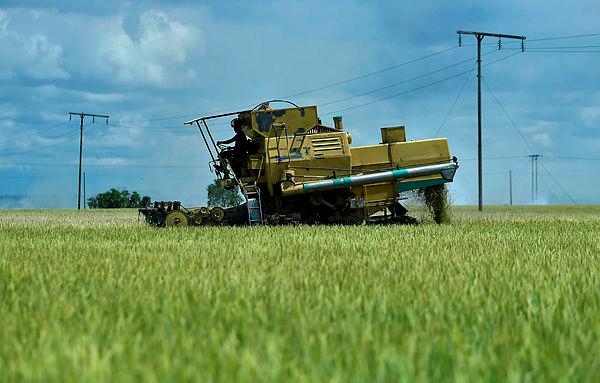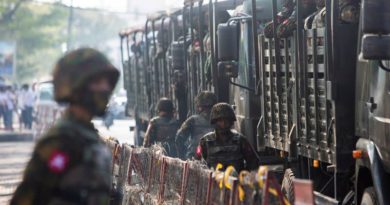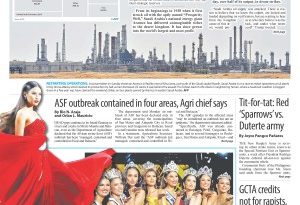HEADLINE-FOOD | Food security challenge: Ensuring food security major challenge for nation: Expert
Pix for visual purposes only–Bernamapix
‘Long-term strategies needed to bolster agriculture sector as climate change, inefficient traditional farming have affected production’

PETALING JAYA: Malaysia may not achieve self-sufficiency in food production unless proactive measures are taken by the government, said Universiti Teknologi Mara Centre for Environmental Health and Safety Studies Assoc Prof Dr Farah Ayuni Shafie.
She said the Decision Support System for Agrotechnology Transfer, a model that simulates the growth, development and yield of various crops, indicates a worrisome 12% reduction in food production in the main season (August to February) and a staggering 31.3% decline in the off-season (March to July) by 2030.
“To address concerns about the potential food shortage entails overcoming numerous regional challenges such as floods, as this is a consequence of climate change.
“Such hurdles render traditional farming methods progressively inefficient and unpredictable. Traditional farming has also been globally hard hit by the Covid-19 pandemic.”
Farah Ayuni said long-term strategies to increase profitability and competitiveness in the agriculture sector must be prioritised to enhance its resilience.
She emphasised that the use of artificial intelligence (AI) in indoor farming could become a cutting-edge solution to meet the demands of a growing population while overcoming the limitations of traditional agriculture.
“Indoor farms do not compete but collaborate by establishing a network for sharing data. This results in optimising yields throughout the year, irrespective of weather conditions.
“Such practices will help to overcome the limitations imposed by climate and geography, and offer the potential to achieve sustainable and resource-efficient farming.”
.
Farah Ayuni said regional challenges and immediate threats have affected the country’s rice cultivation and the availability of water in different parts of the country.
“Climate-related factors such as rising temperatures that hinder crop growth, altered rainfall impacting water availability, extreme weather events causing physical damage, and climate shifts that affect soil fertility have collectively contributed to the anticipated decline in agriculture productivity.
“For instance, the northern region and east coast states that are the main agriculture hubs have routinely suffered from increased rainfall during the northeast monsoon (October to March).
“The intense monsoons that lead to floods and lower rainfall during the southwest monsoon (April to September) also affect irrigation and crop production.”
She said more research and development are required to shift from traditional farming methods to a modern and sustainable one.
Farah Ayuni said implementing modern farming requires strategic financial support mechanisms, collaborations by the private sector and government policies that are aligned with agriculture and climate mitigation.
She added that lacking these, the sector would be powerless to guarantee the economic stability of farmers.
She said the government, for instance, implemented the Sekinchan Large-Scale Smart Padi Field (Smart SBB) initiative through a public-private partnership.
“It was supposed to boost padi production and increase the farmers’ revenue as the costs were to be borne by industry players.
“However, the initiative failed when only 11 out of 27 leading companies participated to increase the average rice yield by seven metric tonnes per hectare,” she said, adding that the initiative only covered 1.1% of the targeted 150,000ha in 2021.
Farah Ayuni said before executing any plan, it is essential to strategically position effective collaborators and skilled government officials in roles that can produce positive outcomes for the sector.
“It is imperative for Malaysia to embrace smart farming practices as a pivotal strategy to enhance agriculture yields and sustain food security.
“By having better and more realistic strategies and policies, indoor-farmed commodities could boost food production in the country,” she said.

@[email protected]


 Memento Maxima Digital Marketing
Memento Maxima Digital Marketing






